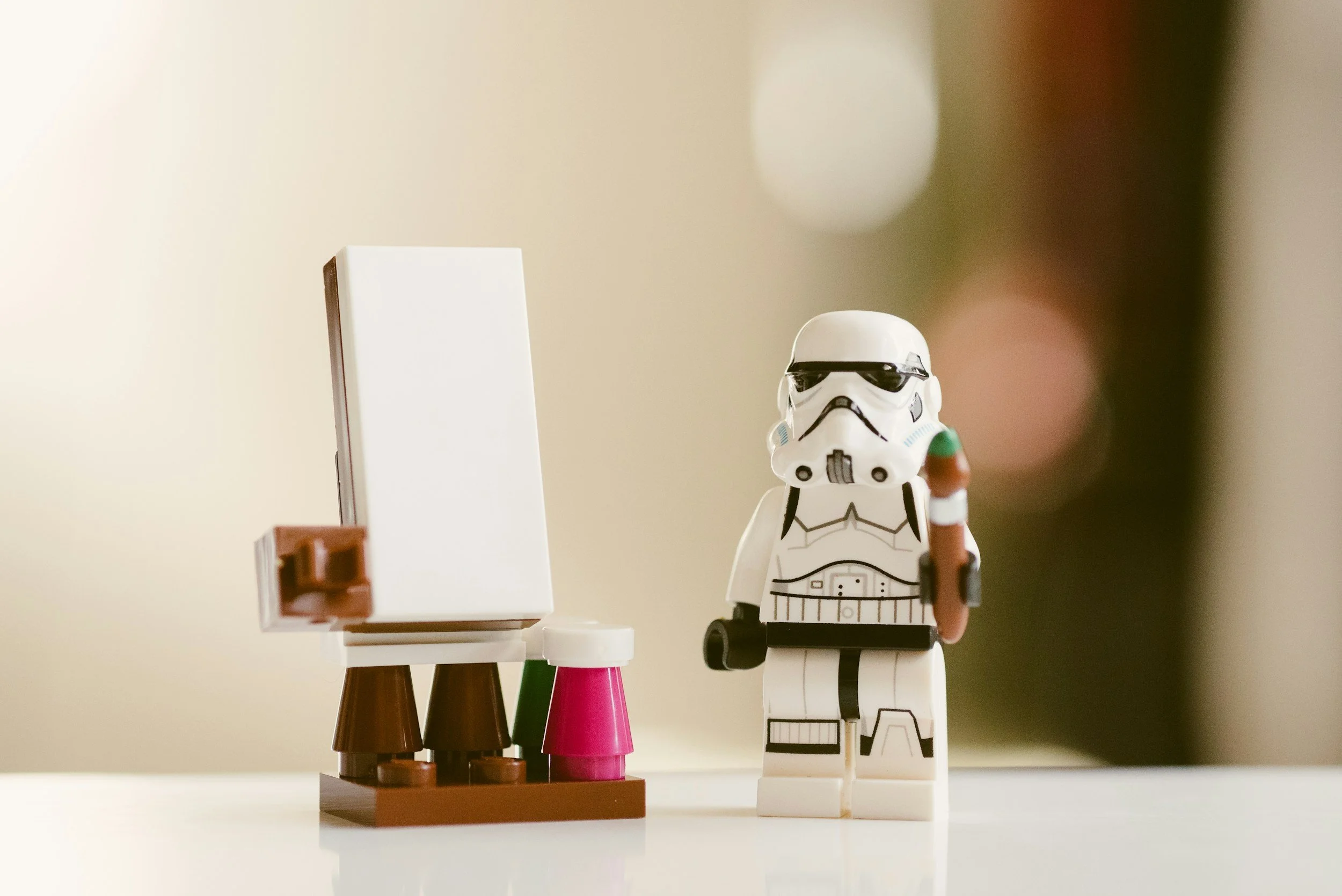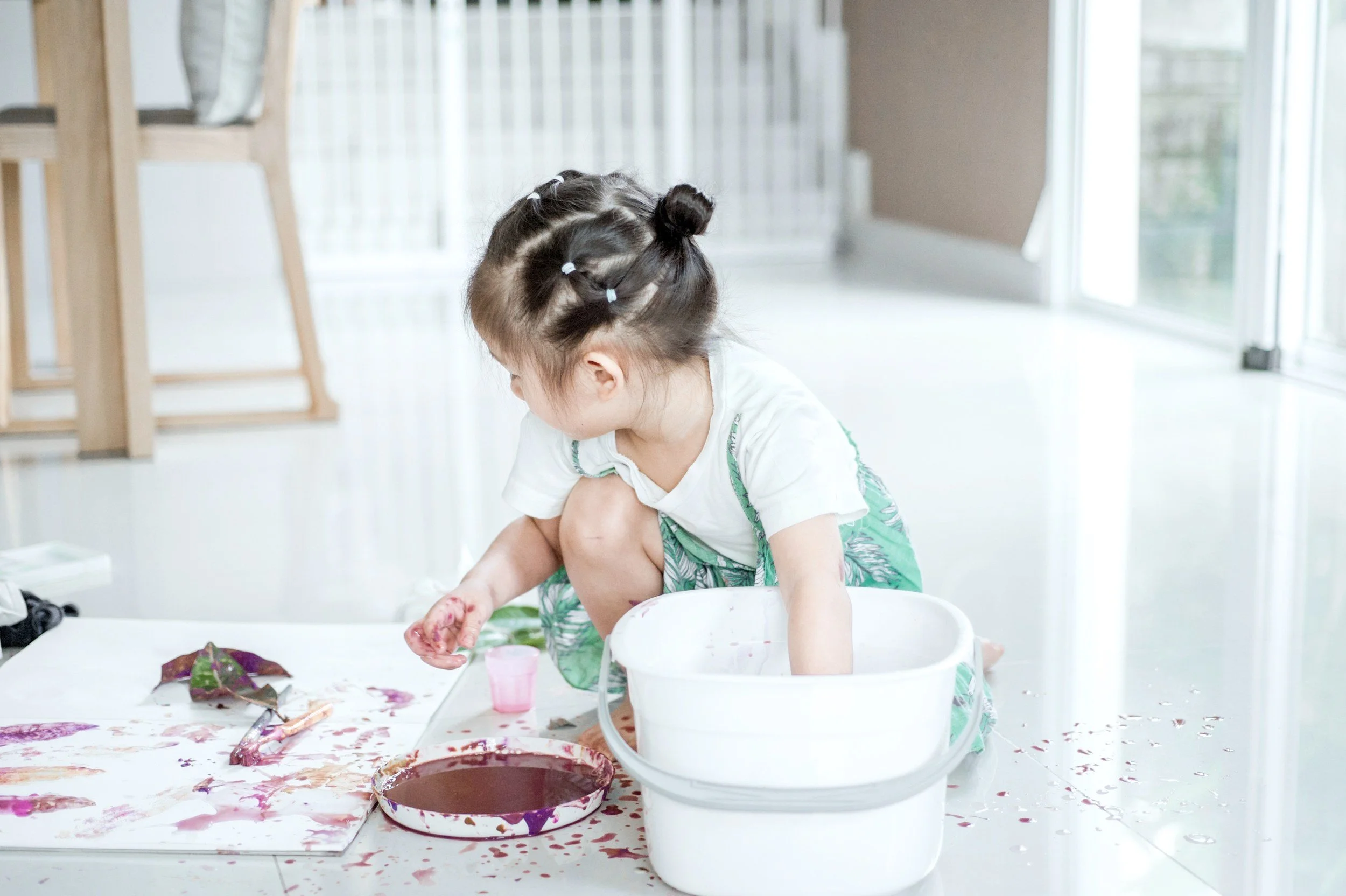Art and Beyond
Bringing creativity into play sessions!
What is Creative Arts in Therapy?
Creative arts sessions provide a safe and nurturing space where children and teens can freely explore their emotions, imagination, and identity through creative expression. These sessions use a variety of art-based materials and activities — such as drawing, painting, collage, sculpture, sensory exploration, and storytelling — to support each child’s unique way of communicating.
The focus is not on the end product, but on the process of creating. Children are never judged or expected to produce “perfect” work. Instead, they are encouraged to express themselves authentically and at their own pace. The act of creating becomes a therapeutic tool that helps children feel heard, valued, and empowered — especially when words are difficult to find.
Creative arts sessions are designed to honour children’s individuality and foster a sense of safety, creativity, and connection within a supportive and developmentally appropriate environment.

How Are Creative Arts Used in Sessions?
Incorporating creative arts into sessions allows children and teens to process experiences and emotions in a way that feels natural, engaging, and non-confrontational. The act of creating helps to regulate the nervous system, calm anxious thoughts, and support emotional release — all without needing to verbalise difficult feelings.
Benefits include:
A non-verbal outlet for big feelings: Children can express things they may not be ready or able to talk about.
Development of emotional regulation: Repetitive, creative actions such as colouring, cutting, or painting help calm the body and mind.
Support for cognitive development: Through problem-solving, pattern-making, and sequencing, children strengthen their thinking skills.
Therapeutic distance: Art allows a child to explore difficult topics from a safe emotional distance, creating space for reflection and insight.
Strengthening self-esteem and identity: Completing and displaying their work helps children feel seen and proud of their efforts.
Enhancing sensory processing and fine motor skills: Many materials used in creative arts offer rich sensory feedback, helping children explore and regulate their sensory needs.
Creative arts sessions are particularly effective because they meet children where they’re at developmentally, giving them tools to grow in confidence, connection, and emotional resilience.
Who benefits from using creative arts?
Creative arts sessions can support a wide range of children and young people, particularly those who:
Experience difficulty expressing themselves verbally
Are navigating emotional or behavioural challenges
Have experienced trauma, grief, or change
Are neurodivergent, including those with autism, ADHD, or sensory processing differences
Live with anxiety, low confidence, or self-esteem issues
Benefit from hands-on, sensory-based learning and expression
Are building skills in emotional regulation, communication, or social connection
These sessions are adaptable and child-led, making them suitable for both NDIS and privately funded clients, and are designed to meet each child's developmental and emotional needs in a safe, creative, and respectful space.

